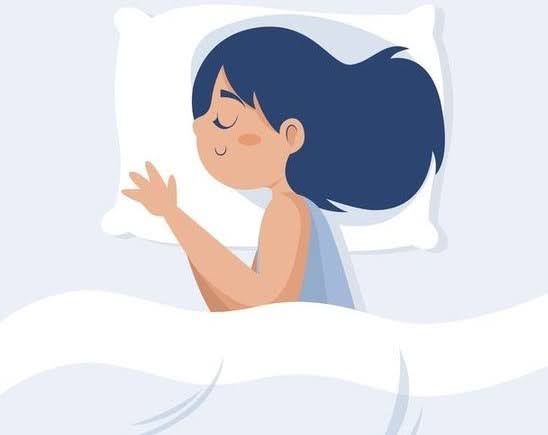Introduction
A good night’s sleep is essential for overall health and well-being. While we often prioritize factors like mattress quality and room temperature, the position in which we sleep also plays a crucial role in the quality of our sleep. In this article, we will explore the science behind various sleep positions and reveal the position that scientists consider to be the best for a restful and rejuvenating slumber.
On Your Back: The Supine Position
Sleeping on your back, also known as the supine position, is favored by many experts for its potential benefits. This posture allows for proper alignment of the spine, reducing the risk of developing neck and back pain. Additionally, sleeping on your back helps prevent acid reflux since the head and stomach are at an equal level, minimizing the chances of stomach acid flowing into the esophagus. Furthermore, this position reduces facial wrinkles and minimizes the likelihood of developing pressure sores.
However, there are potential drawbacks to this position. Sleeping on your back can exacerbate snoring and sleep apnea symptoms, as gravity can cause the tongue and soft tissues to obstruct the airway. For individuals who already snore or have sleep apnea, it is advisable to consult with a healthcare professional before adopting this position.
On Your Side: The Lateral Position
The lateral position, or sleeping on your side, is another popular choice among sleep experts. This posture offers significant benefits, particularly for those who snore or suffer from sleep apnea. By sleeping on your side, the airway remains open, minimizing the risk of breathing obstructions and reducing snoring episodes.
The lateral position also provides relief for individuals with acid reflux. By sleeping on the left side, gravity helps prevent stomach acid from moving into the esophagus, reducing heartburn discomfort. This position can also alleviate pressure on internal organs, allowing for better digestion.
It’s worth noting that sleeping on your side can lead to shoulder and hip pain if the body is not properly supported. Placing a pillow between the knees can help maintain proper spinal alignment and alleviate pressure points, promoting better sleep quality.
On Your Stomach: The Prone Position
While some people find comfort in sleeping on their stomachs, this position is generally discouraged by sleep experts due to its potential negative impact on the body. Sleeping on your stomach places strain on the neck and spine, as the head is forced to turn to the side, disrupting the natural alignment. This can lead to chronic neck and back pain over time.
Moreover, stomach sleeping often results in increased pressure on the joints, causing discomfort and potential numbness or tingling sensations. The prone position can also restrict breathing and lead to snoring, making it a less desirable choice for those with existing respiratory issues.
The Ideal Position: Back-sleeping with Slight Elevation
While personal preference plays a role in choosing a sleep position, science points to back-sleeping with a slight elevation as the ideal position for most individuals. By using a pillow to elevate the head slightly, the airway remains open, reducing the likelihood of snoring and sleep apnea symptoms. This position promotes proper spinal alignment, reducing the risk of developing back and neck pain. Moreover, it helps prevent acid reflux by keeping the head elevated above the stomach.
Conclusion
Finding the ideal sleep position can significantly impact the quality of our sleep and overall well-being. While personal preferences and individual circumstances may influence our choices, scientific research suggests that back-sleeping with a slight elevation is generally considered the best position for most people. As always, it is important to consult
with a healthcare professional to address any specific concerns or underlying conditions that may affect sleep quality and posture. With this knowledge, we can optimize our sleep positions and experience the benefits of a truly restful slumber.
